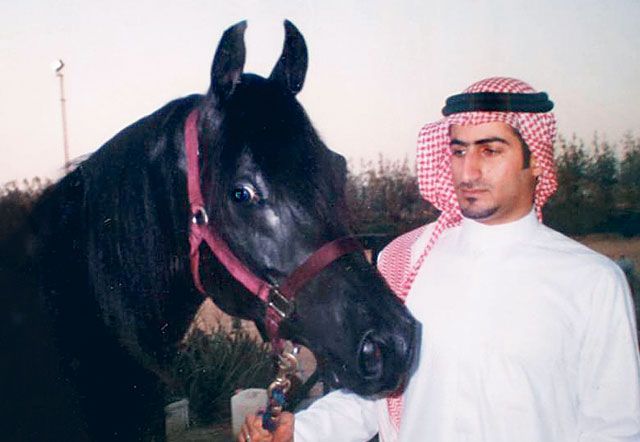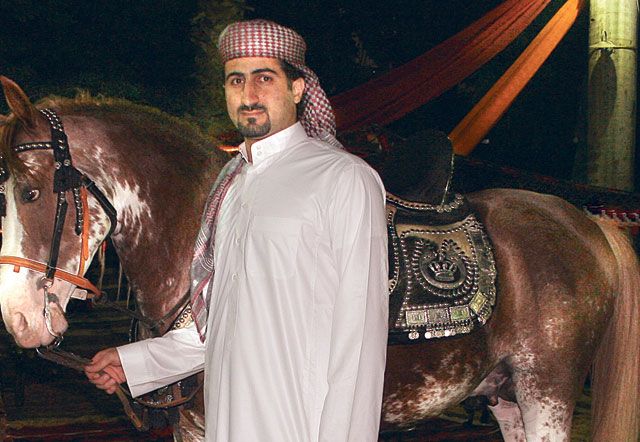To the rest of the world, Osama Bin Laden is the most wanted man in the world. But for Omar, he is just a strict, disciplinarian father who rarely showed any affection when Omar was growing up.
In Growing Up Bin Laden, he says: "Although I cannot simply order my heart to stop loving my father, I do not agree with his behaviour. There are times [when] I feel my heart swell with anger at his actions, which have harmed many people — people he did not know and members of his own family. As the son of Osama Bin Laden, I am truly sorry for all the terrible things that have happened, the innocent lives that have been destroyed."
Excerpts from an interview:
Why did you approach an author to write your story?
So many media outlets printed articles about me and reported many things that were untrue. For this reason, I wanted to be the one to tell my story and to set the records straight.
I have seen and read most of your father's speeches and I do understand that the West's treatment of some of our issues, such as the Palestinian-Israeli conflict, is enraging. What do you feel about these issues?
Like most Arab Muslims, I have never been happy with the situation in Palestine. I want the treatment of Arabs and Muslims to be fair. That does not always happen. Even Americans or other Western people agree that specific Muslim problems have not received appropriate resolutions. I think people are beginning to see this and are becoming more prepared to sit down and resolve issues fairly.
I asked Jean Sasson this question and I would like to ask you this in a different way: How were you treated by Arab and foreign countries after your identity was revealed?
Truthfully, when most people discover that I am Omar Bin Laden, the son of Osama Bin Laden, they are usually very nice to me. I do not feel they dislike me. Most are interested in hearing stories about my father, of course but I am not so open about that unless I know someone very well.
Tell us about the interrogation you went through in Spain.
As I went there without a proper visa and asked to [be allowed to] stay there, I was held until the issue could be resolved. While there, the security forces basically asked me why I wanted to come to their country. They were never rough with me in any way, although I am sorry I was not allowed to be free while they were making their decisions. I would have liked to have seen something of their beautiful country.
While there, the Americans were called in and they met me. Those Americans said they were with the State Department and asked me to tell them where my father was. If I would do so, they would give me an American passport. Of course, I did not know where my father was and I thought they should be the ones showing me on the map where he was. I had not seen my father in many years by that time and was not in touch with him.
In Chapter 30, titled ‘September 11, 2001', you said: "A weird wail, followed by an excited voice, woke me from a deep sleep. I was at my grandmother's home in Jeddah when my uncle came running into my room, his voice high, his words confusing. ‘Look what my brother has done! Look what my brother has done! He has ruined all our lives! He has destroyed us!' He continued to shout, ‘Come quickly! Come and see what my brother had done! See what your father has done!' I dressed hurriedly and followed him into a room with a television screen. I saw flames belching from tall buildings. I had no idea what I was looking at. I knew soon enough, however: America was under a serious attack."
My question is: How did your uncle know it was your father who was responsible for 9/11 from the very start, even as the twin towers were still burning, while it took a few days for any authority to declare the fact?
Everyone knew that the US had problems with Al Qaida even if they did not know my father's name. The Saudi Arabian people knew that the leader of Al Qaida was Osama Bin Laden.
My uncle had slept most of that day, so it was late when he turned on the TV. I think he just put two and two together. But I never asked my uncle that question. So I do not know what was on his mind. That day was such a shock for everyone that we never again discussed it.
Many people believe that Aymen Al Zawahiri has a very negative effect on your father.
I do believe that my father was influenced by Dr Al Zawahiri and that the influence was not good. So I do not disagree with what other people say about this.
What made you distance yourself from your father's organisation?
First of all, I would like to say that my father never asked me to join Al Qaida and I never asked to join the organisation. Al Qaida was "his business", not mine.
But by the time I was a teenager, I had come to see that I was not suited to live the life my father had chosen for himself. I wanted to return to Saudi Arabia, to live normally. I wanted to go to school, to finish my education. I am not a man who likes talk of war and fighting. This did not make me happy. In fact, it made me very unhappy. So once I was old enough to leave and to make my own life, I left.
Do you believe your father is still alive? What would you say to him if you ever meet him?
Yes, I believe that my father is still alive. This question is not something I can answer. I have no idea what I would say to my father if I were to see him again.
I would probably say a lot of different things but perhaps I would be so shocked I couldn't think of anything to say. But he is my father and in my culture, sons do not insult their fathers, no matter what their differences may be.
Since 9/11, you have not heard anything from your brothers. Is there any way you can verify that they are still alive? Do you miss them a lot?
Of course, I cannot verify that anyone who remained behind is alive. I hope they are alive and well because they are of my blood. What I miss is having a family. My family is scattered all over the world and we cannot be together. Anyone would miss their family if they were torn from them.
How old is your son Ahmad now? How will you address the issue of Osama Bin Laden with him when he will start asking questions?
My young son is only 5. Thanks be to God that I have a lot of time to think about what I will say to my son when he reaches an older age and has questions about his father's family. At the moment I am afraid I have no answer to this question because I probably will not know what I will say until the time comes.
You say, "I am nothing like my father. While he prays for war, I pray for peace." Is the book your way of explaining this fact, a way for people to know who you are and what you think?
As I told you at the beginning of this conversation, I wanted my story to be told so that I could say the truth about my life. No one knows about my life but me. This book will set the records straight.




